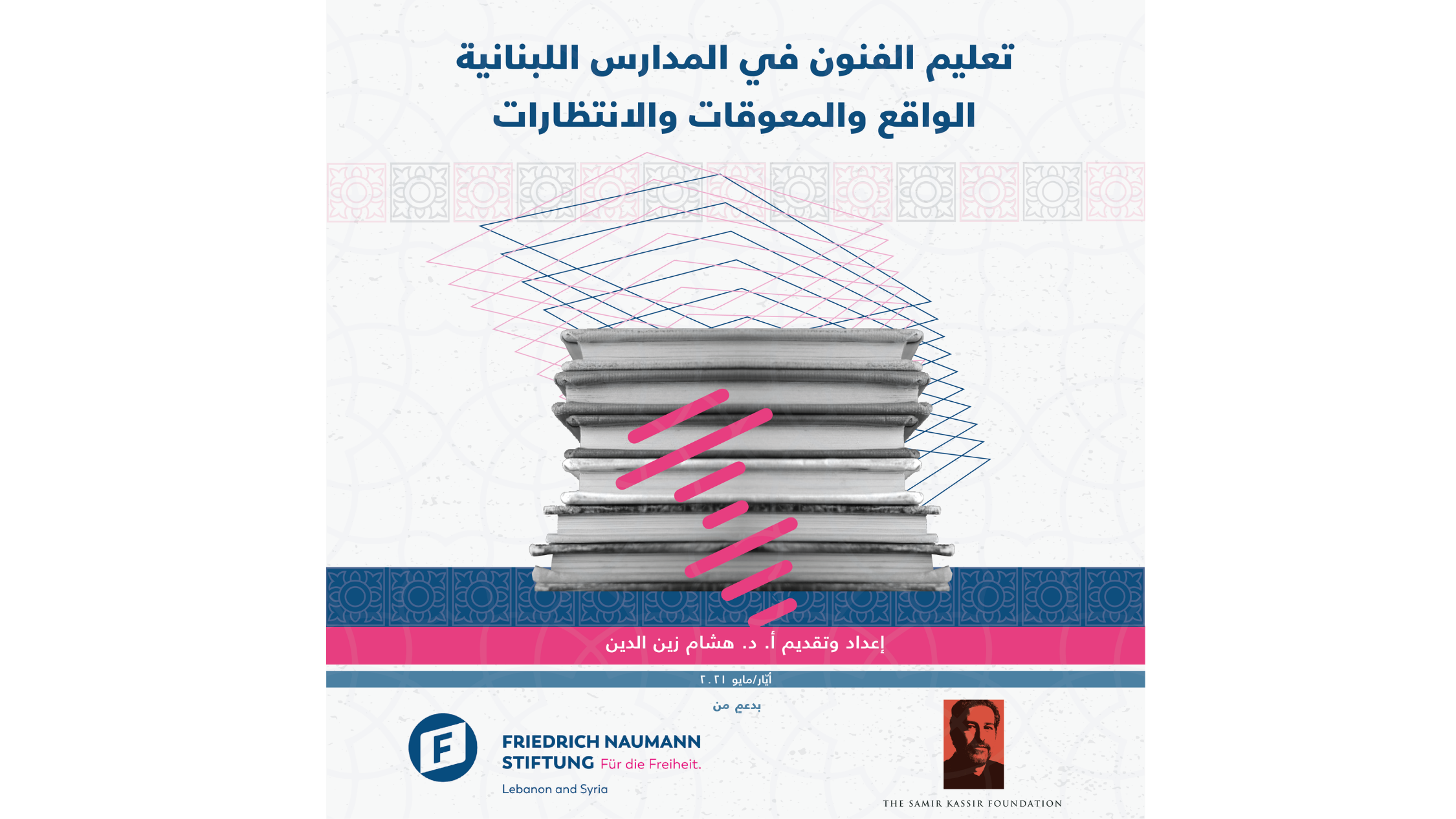Cultural Policy Making Papers
Teaching Arts in Lebanese Schools: Facts, Obstacles and Expectations

In this study, Dr. Hicham Zeineddine sheds light on art education in Lebanese schools and the obstacles it faces. He also explores the reasons behind such constraints and suggests possible solutions. The study aims at drawing the attention of education officials to the importance of art education and coming up with practical and objective findings.
We hope that the officials will take our recommendations into consideration while amending the arts curricula and how they will be later implemented in schools. The objectives of the present study are stated below:
- Shed light on arts curricula legislation
- Determine the educational institutions in charge of training teachers to facilitate art classes
- Identify the kinks in art teaching in terms of both methodology and application
- Draw objective findings and make them available to education officials
- Look into the role of arts in education and contribute in developing a research base that could serve as a reference for subsequent papers.
To prepare this study, we used publications and statistics developed by the Centre for Educational Research and Development, which is directly linked to the Ministry of Education and Higher Education. We also quoted the articles published in the Centre’s magazine, and particularly “Arts in Education”, a paper published by the researcher in the aforementioned magazine. We also relied on the information we gained through experience in the research field knowing that the researcher worked as a fine arts specialist at the Centre for Educational Research and Development from 2004 to 2009.
Thanks to interactive communication with the research community, we held in-person meetings with several art teachers in both public and private schools, along with virtual connection with 100 other teachers. They answered specific questions about art education in their schools. These teachers were selected as a sample representing the Lebanese private and public schools across the country and taking into account the differences between schools from an economic perspective.
About the Author
Hicham Zeineddine holds a Doctorate in Performing Arts from the St. Petersburg State Academy of Dramatic Arts and a Master’s degree in drama directing from the Belarusian State Academy of Arts. He is a professor at the Lebanese University’s Faculty of Fine Arts and Architecture where he teaches directing, writing and acting, along with other theoretical classes. He heads the Higher Institute of Doctoral Studies at the Lebanese University. He is the editor-in-chief of the Educational Journal of Lebanon, as well as the founder and director of the Lebanese Educational Theatre Company. Zeineddine has published dozens of articles and research papers tackling arts, culture and theatre in several Lebanese newspapers and magazines (An-Nahar, As-Safir, Al-Hayat). He was appointed as a fine arts specialist at the Centre for Educational Research and Development from 2004 to 2009 and chairs the Theatre Curriculum Committee since 2007. He also directed the Progressive Thought Forum between 2015 and 2019. He wrote and directed dozens of plays.
About the Legal Advisor
Layal Sakr holds a Master’s degree in Law from Saint Joseph University of Beirut. She established her own practice and has helped found a number of NGOs and civil and commercial companies. She has more than 15 years of experience, with a focus on human rights and the protection of marginalized groups. She has worked with multiple local and international organizations to develop public policies and advocate for legal reforms, and implement projects and activities aiming at addressing all forms of discrimination and marginalization of vulnerable groups. She has conducted various workshops on social entrepreneurship, freedom of expression, sexual harassment, and LGBT rights, among others. In 2016, Layal founded Seeds for Legal Initiatives, a non-profit organization aiming to raise awareness about rights by promoting legal knowledge through capacity development programs and communication campaigns; provide legal advice and access to representation; and advocate for legal reform.
Seeds for Legal Initiatives provided a study on the legal framework of the craft sector in Lebanon, available in the appendix of the Arabic version of the present document.